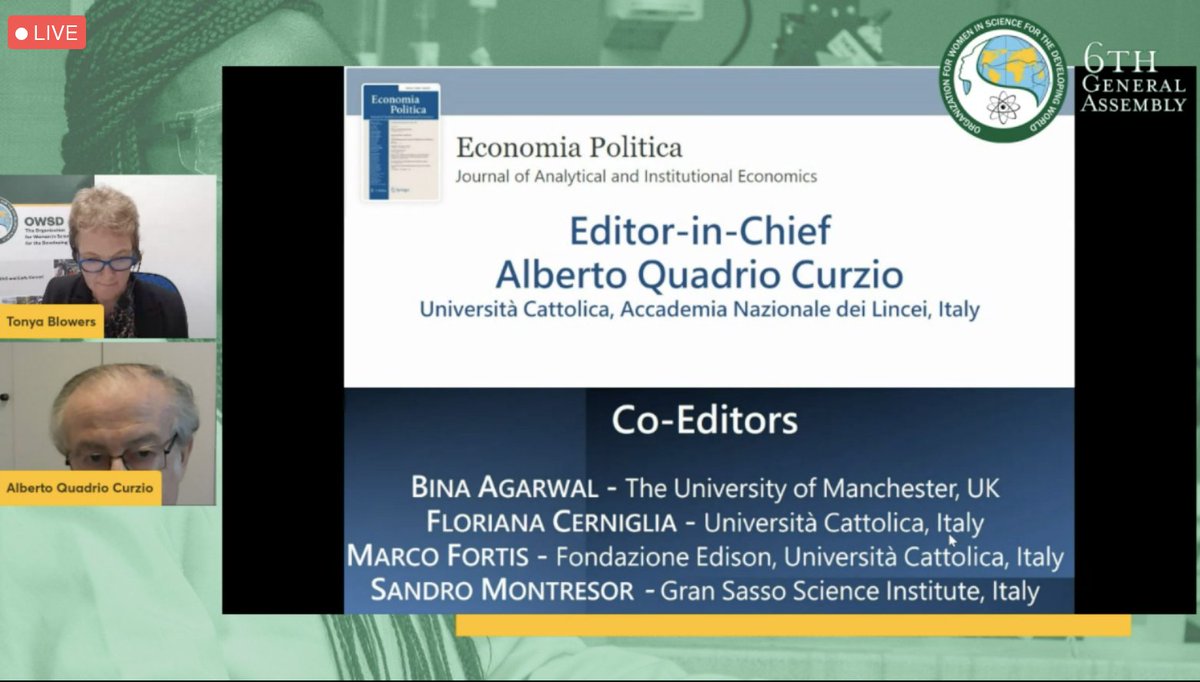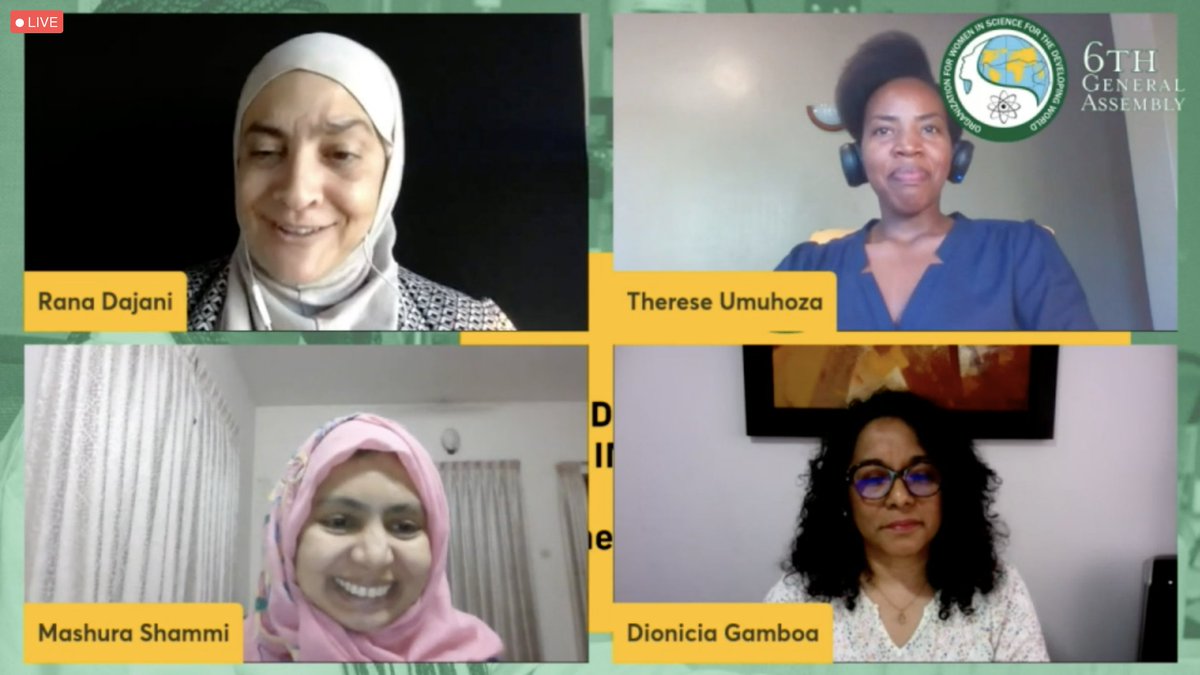OWSD General Assembly Day 2: Members reveal the effect of COVID-19 on their research, personal lives
November 12, 2021
Day 2 of the OWSD 6th General Assembly and International Conference centered on the them ‘The impact of the COVID-19 pandemic on women of the developing world.’
Alberto Quadrio Curzio, President Emeritus of the Italian Academy of Sciences and Humanities and OWSD Ambassador, gave a live presentation on a special issue of the Economica Politica Journal of Analytical and Institutional Economics (EPOL) entitled “Special Issue on Pandemics, Women and the Global South”. Other guest co-editors of this special issue with Alberto Quadrio  Curzio include OWSD President Jennifer Thomson, social economist and philosopher Amartya Sen, and development economist Bina Agarwal. Each of the guest editors have contributed an article to the issue. Other articles focus on different aspects of the pandemic and its impact on women of the pandemic in India, Brazil, and Peru.
Curzio include OWSD President Jennifer Thomson, social economist and philosopher Amartya Sen, and development economist Bina Agarwal. Each of the guest editors have contributed an article to the issue. Other articles focus on different aspects of the pandemic and its impact on women of the pandemic in India, Brazil, and Peru.
The special issue contains an article entitled “Resilient Women Scientists and the Covid-19 Pandemic: an OWSD Analysis,” co-written by OWSD President Jennifer Thomson, OWSD Coordinator Tonya Blowers, and OWSD Communications Officer Erin Johnson. Tonya Blowers commented that the article was necessary because there was a lack of information on how women scientists in developing countries were faring during the pandemic. On the findings of this article, Tonya Blowers said: “While there were, of course, some very negative experiences of the pandemic, there were also some surprising positive experiences of the pandemic... It is a complex analysis and the results are really interesting.”
This special issue will be published in January 2022. All the articles are currently available for download free of charge.
First-hand testimonies
 Three OWSD scientists then took centre stage to share their experiences and responses to the COVID-19 pandemic in a lively panel discussion moderated by Rana Dajani, a Palestinian-Jordanian molecular biologist and professor of biology and biotechnology at Hashemite University. The panel discussion was entitled “Responses to COVID-19 with OSWD members”.
Three OWSD scientists then took centre stage to share their experiences and responses to the COVID-19 pandemic in a lively panel discussion moderated by Rana Dajani, a Palestinian-Jordanian molecular biologist and professor of biology and biotechnology at Hashemite University. The panel discussion was entitled “Responses to COVID-19 with OSWD members”.
Therese Umuhoza is a research epidemiologist and an OWSD PhD scholar in tropical infectious diseases at the University of Nairobi. She monitors outbreaks daily and alerts the public health community to imminent threats and outbreaks. Therese remembers being overwhelmed with alerts as the pandemic took hold in early 2020. In addition to watching the worrying progress of the pandemic, she became concerned for her family in her native Rwanda, some of whom had to be hospitalized with the disease. Due to the lockdowns and the cessation of travel, she could only communicate with them long-distance. Her anxious family turned to her for information about the virus, about how to stay safe, and about the vaccine, when it became available.
Despite Mashura Shammi’s husband and brother-in-law being hospitalized in isolation, she came together with her colleagues to write op-eds targeting policymakers, particularly on COVID-19 waste management. Her articles led to the ongoing revision of the Bangladesh policy framework on waste management. Using data Mashura and her colleagues collected through an online survey, they wrote papers proposing solutions to the government in the short, medium and long term regarding the management of the worsening socio-economic situation resulting from the pandemic. Mashura is an Associate Professor at the Department of Environmental Sciences, Jahangirnagar University in Bangladesh.
For Dionicia Gamboa, a parasitologist whose research focuses on malaria in Peru, the challenge lay in pausing her research and finding ways to support COVID containment measures by distributing masks and other protective gear. She and her team had to learn how to use online technologies to stay in touch.
Poster session
Day 2 ended with a live poster session in the conference virtual lounge, still on the theme of OWSD members' responses to the pandemic. Through avatars, conference participants were able to navigate around a virtual poster room and see posters submitted by OWSD scientists explaining specific aspects of their work, as well as to ask the scientists questions through video chat.
All presentations from the day are available to watch on OWSD's YouTube Channel.











































